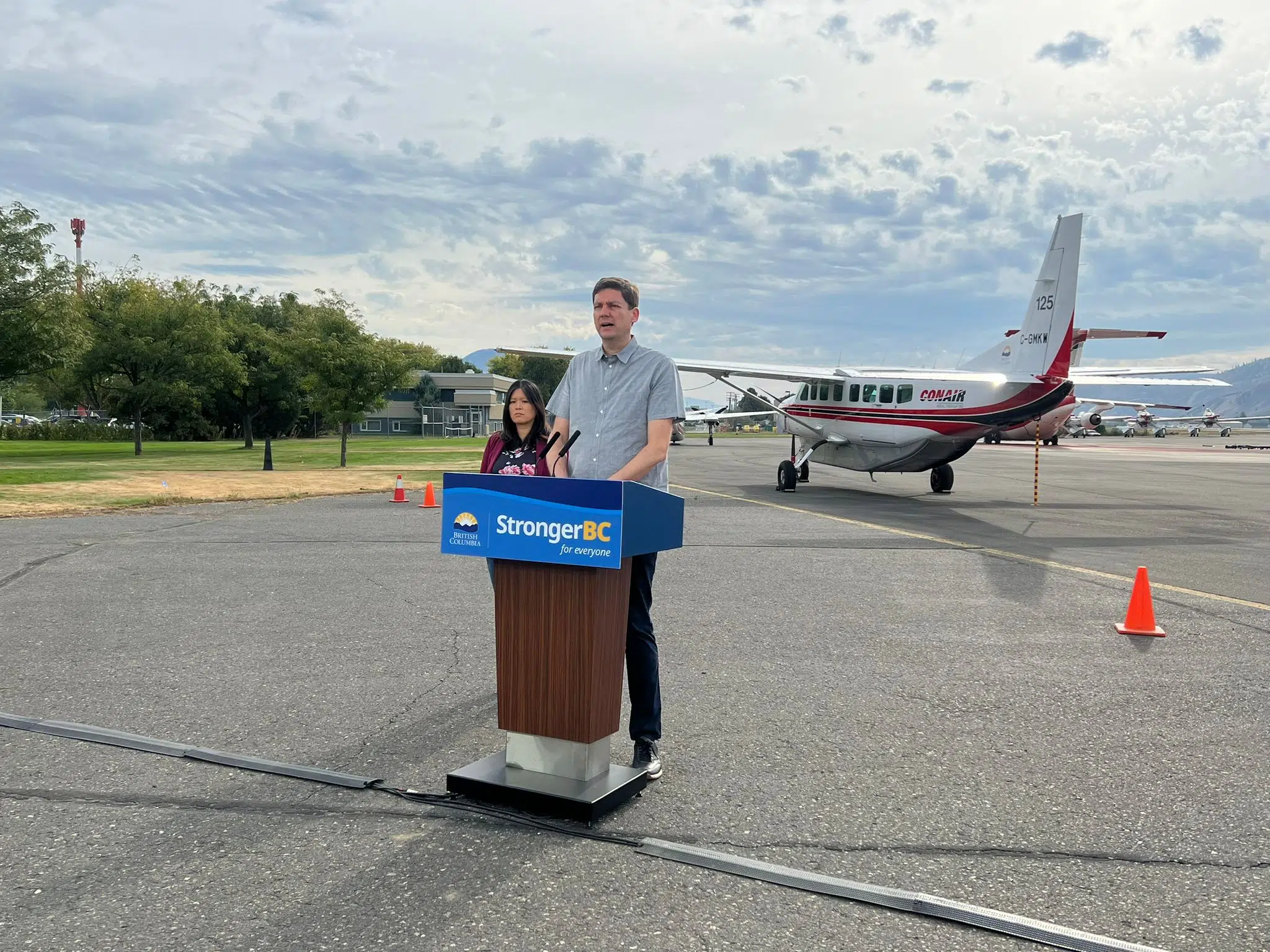
BC Premier David Eby in Kamloops on Sept. 11, 2023, as part of his trek to visit wildfire affected communities in the BC Interior (Photo via Abby Zieverink)
Premier David Eby’s expert task force on emergencies has made 31 recommendations that will be implemented “in real time” to help prepare for this summer’s wildfire season.
Some of the recommendations include the use of new technology like artificial intelligence to predict fire behaviour, improving local response and coordination efforts, while also providing more timely information to affected residents.
There are also calls for faster initial response to fires that break out as well as improvements to Emergency Support Services (ESS) offered to evacuees, including post-wildfire support.
“I extend my deepest gratitude to the task force members who worked hard to provide recommendations that will have a direct impact on people and communities by strengthening the way we prepare for and respond to emergencies, particularly wildfires,” Eby said, in a summary of the recommendations.
“By continuing to work together, I am confident that we will be ready to respond to the challenges of climate change and better able to protect our province for future generations.”
The TNRD’s CAO Scott Hildebrand was one of 13 people – and three Kamloops-area representatives – named to this task force last fall. It held its final meeting late last month.
“Given our short time frame, our group came together a total of 13 times between October and February, working against the nine specific deliverables,” Hildebrand said.
“The task force also carried out targeted engagements with over 60 emergency management partnerships along with other groups that offered to share their perspectives with the task force.”
Hildebrand says all of the recommendations – including the new wildfire research centre at Thompson Rivers University, which the Premier called the “flagship recommendation” – are aimed at better supporting people on the front lines, while also using lessons learned in preparation for the next emergency.
“We are excited and confident in our recommendations that were developed and feel that these changes will truly make a difference both immediately and in the future,” Hildebrand said. “The wildfire landscape is certainly changing and the fires that we are experiencing are more frequent and complex.”
“The one thing I would like to really emphasize is that we all have a role to play going forward. The task force is very proud of what we’ve come forward with and accomplished, but we are more excited about the success going forward.”
Speaking in Kamloops Thursday, Eby said all of the recommendations will be implemented.
“It’s expensive,” Eby said. “We spent a billion dollars last year responding to fires. Our hope is that investments like this assist us in minimizing the costs that we know we’re going to face going forward related to forest fire.”
The task force was launched in response to last year’s catastrophic wildfire season in British Columbia.
“In the the last three, we have seen two of the worst forest-fire seasons our province has seen and the trend is clear and profoundly concerning,” Eby added. “The snowpack is much lower than normal, many parts of the province are at the highest level of drought and the fire threat is very profound.”
















